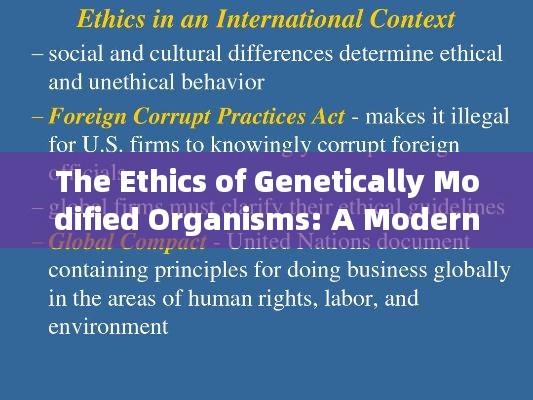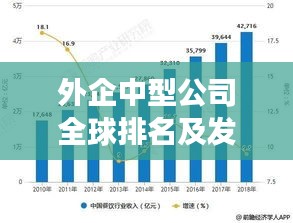标题:The Ethics of Genetically Modified Organisms: A Modern Debate
Introduction
The debate over genetically modified organisms (GMOs) has been a hot topic in recent years, with strong opinions on both sides. As technology advances, the creation and consumption of genetically modified crops, animals, and even humans have become increasingly controversial. This article delves into the various arguments and ethical considerations surrounding the use of GMOs, exploring both the benefits and potential risks associated with this modern agricultural practice.
What Are Genetically Modified Organisms?
Genetically modified organisms are organisms whose genetic material has been altered in a way that does not occur naturally through mating or natural recombination. This alteration is typically achieved through the use of biotechnology, where genes from one organism are inserted into another to create a new combination of traits. The most common examples of GMOs include genetically modified crops, such as corn, soybeans, and cotton, as well as genetically modified animals, such as salmon and pigs.
Benefits of Genetically Modified Organisms
Proponents of genetically modified organisms argue that they offer numerous benefits, including increased crop yield, reduced reliance on pesticides, and improved nutritional value. Here are some of the key advantages:
- Increased Crop Yield: Genetically modified crops are often engineered to be more resistant to pests, diseases, and environmental stress, leading to higher yields.
- Reduced Pesticide Use: By making crops more resilient to pests, genetically modified plants can reduce the need for chemical pesticides, which have negative environmental and health impacts.
- Improved Nutritional Value: Some genetically modified crops have been developed to contain higher levels of vitamins, minerals, and other nutrients, addressing nutritional deficiencies in certain populations.
- Climate Resilience: Genetically modified crops can be engineered to withstand extreme weather conditions, such as drought or flood, which is crucial for food security in a changing climate.
Risks and Concerns of Genetically Modified Organisms
Despite the potential benefits, there are significant concerns and risks associated with genetically modified organisms. Critics argue that the long-term effects of consuming genetically modified foods are unknown, and that there may be unforeseen ecological consequences. Here are some of the main concerns:
- Health Risks: Some people worry that genetically modified foods may cause allergies, cancer, or other health issues, although scientific evidence to support these claims is limited.
- Ecological Impact: Genetically modified organisms could potentially disrupt ecosystems by outcompeting native species or by causing unintended genetic changes in other organisms.
- Loss of Biodiversity: There is a concern that the widespread adoption of genetically modified crops could lead to a loss of biodiversity, as traditional crop varieties are replaced by a few genetically engineered varieties.
- Corporate Control: Critics argue that the dominance of a few large biotechnology companies in the development and distribution of genetically modified organisms could lead to increased corporate control over the global food supply.
Regulation and Labeling
To address these concerns, many countries have implemented regulations and labeling requirements for genetically modified organisms. These regulations vary widely, with some countries requiring strict approval processes for genetically modified crops and animals, while others have minimal regulations. Proponents of labeling argue that consumers have the right to know what they are eating, while opponents argue that labeling could unnecessarily scare consumers and create a false sense of risk.
Conclusion
The debate over genetically modified organisms is complex and multifaceted. While there are clear benefits to be gained from the use of genetically modified organisms, there are also significant risks and ethical considerations that must be carefully weighed. As technology continues to advance, it is essential that we balance the potential benefits with the potential risks, ensuring that the development and use of genetically modified organisms are conducted in a responsible and transparent manner. Only through informed discussion and collaboration can we make the best decisions for the future of our food systems and the health of our planet.
The Fruit of Diligence: The Rewards of Hard Work in the Modern Era
《Aphrodite in the Spotlight: The Most Popular Character in the Anime World》
Navigating the CyberVERSE: A Deep Dive into Today's Hottest Topics and Concepts
Who Are the Hottest Heroes in the English-speaking World?
Breaking News: Real-Time English News Coverage Across the Globe
The Evolution of English Real-Time Morning News on Foreign WeChat Public Accounts
Revolutionizing Productivity: The Power of Real-Time Piecework System (RTPS)
The Evolution and Challenges of Real-Time English Translation Evaluation












 鄂ICP备14007991号-17
鄂ICP备14007991号-17